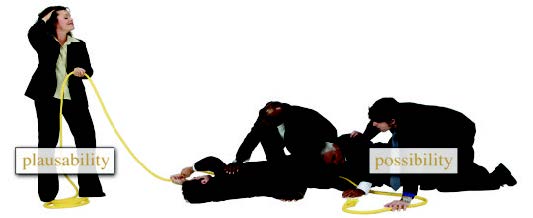Twombly and Iqbal: the Effect of the "plausibility" Pleading Standard on Alabama Litigators
| Publication year | 2010 |
| Pages | 0075 |
| Citation | Vol. 71 No. 1 Pg. 0075 |
By J. Thomas Richie and Anna Manasco Dionne

Introduction
Two Rule 8s currently apply in courts in Alabama. On the face of things, they are indistinguishable. Federal Rule of Civil Procedure 8 and Alabama Rule of Civil Procedure 8 contain identical language defining pleading standards in a complaint: both require "a short and plain statement of the claim showing that the pleader is entitled to relief." Compare Ala. R. Civ. P. 8(a) with Fed. R. Civ. P. 8(a)(2). Don't let the identical language fool you.
The United States Supreme Court recently decided two cases that fundamentally changed the vocabulary, and the reality, of notice pleading. These cases-Bell Atlantic Corp. v. Twombly, 550 U.S. 544 (2007), and Ashcroft v. Iqbal, 129 S. Ct. 1937 (2009)-impose a higher burden on plaintiffs' pleadings, a burden of "plausibility" instead of mere "possibility." As a result, defendants in federal court have enjoyed increased success in having claims dismissed before discovery begins.
This change has not yet spread to Alabama's state courts. Despite the identical language and Alabama's established preference for construing its rules of procedure in line with the federal rules, the court of civil appeals has twice declined to adopt the Twombly standard, waiting for the authoritative word from the Alabama Supreme Court. For now, the Alabama and federal rules are diverging.
This article first examines Twombly and Iqbal to determine exactly what notice-pleading standard a plaintiff in federal court must satisfy. Second, it highlights how this new federal standard differs from the Alabama pleading standard. Third, it explores two important areas of law where the divergent notice pleading standards are particularly important for practitioners. Finally, it evaluates the prospects of Twombly and Iqbal reaching Alabama state courts.
Twombly and Iqbal
Federal Rule of Civil Procedure 8 requires that a complaint contain "a short and plain statement of the claim showing that the pleader is entitled to relief." For more than 50 years, Conley v. Gibson established the authoritative construction of Rule 8. 355 U.S. 41, 45-46 (1957). In an opinion by Justice Black, the Court described as "accepted" the "rule that a complaint should not be dismissed unless it appears beyond doubt that the plaintiff can prove no set of facts in support of his claim that would entitle him to relief." Id. Although Conley's complaint that his union breached its statutory duty to represent all its members "failed to set forth specific facts to support its general allegations," the Court reversed the dismissal of the complaint because the Federal Rules "do not require a claimant to set out in detail the facts upon which he bases his claim[,]" and require only that the plaintiff "give the defendant fair notice of what the . . . claim is and the grounds upon which it rests." Id. at 47. Courts interpreted Conley to suggest that a plaintiff's claim must be dismissed only when his inability to prove any set of facts to support it is apparent from the face of the pleading; in effect, Conley established a "possibility" standard.
The Court revisited this rule in Twombly, holding that a complaint cannot survive a motion to dismiss unless it contains "enough facts to state a claim to relief that is plausible on its face." 550 U.S. 544, 570 (emphasis added). The Court made clear that a claim that is merely "conceivable" is insufficient. In an opinion joined by seven justices, the Court reiterated that Rule 8 does not require that "a claimant set out in detail the facts upon which he bases his claim," but nevertheless requires some specificity: "[it] still requires a showing, rather than a blanket assertion, of entitlement to relief." Id. at 556 n.3. The Court stated that "a formulaic recitation of the elements of a cause of action will not do" and that "a legal conclusion couched as a factual obligation" is not entitled to a presumption of truth against a motion to dismiss. Id. at 555. Because the complaint of the consumer class that the telephone service providers illegally conspired to restrain trade did not state enough...
To continue reading
Request your trial
